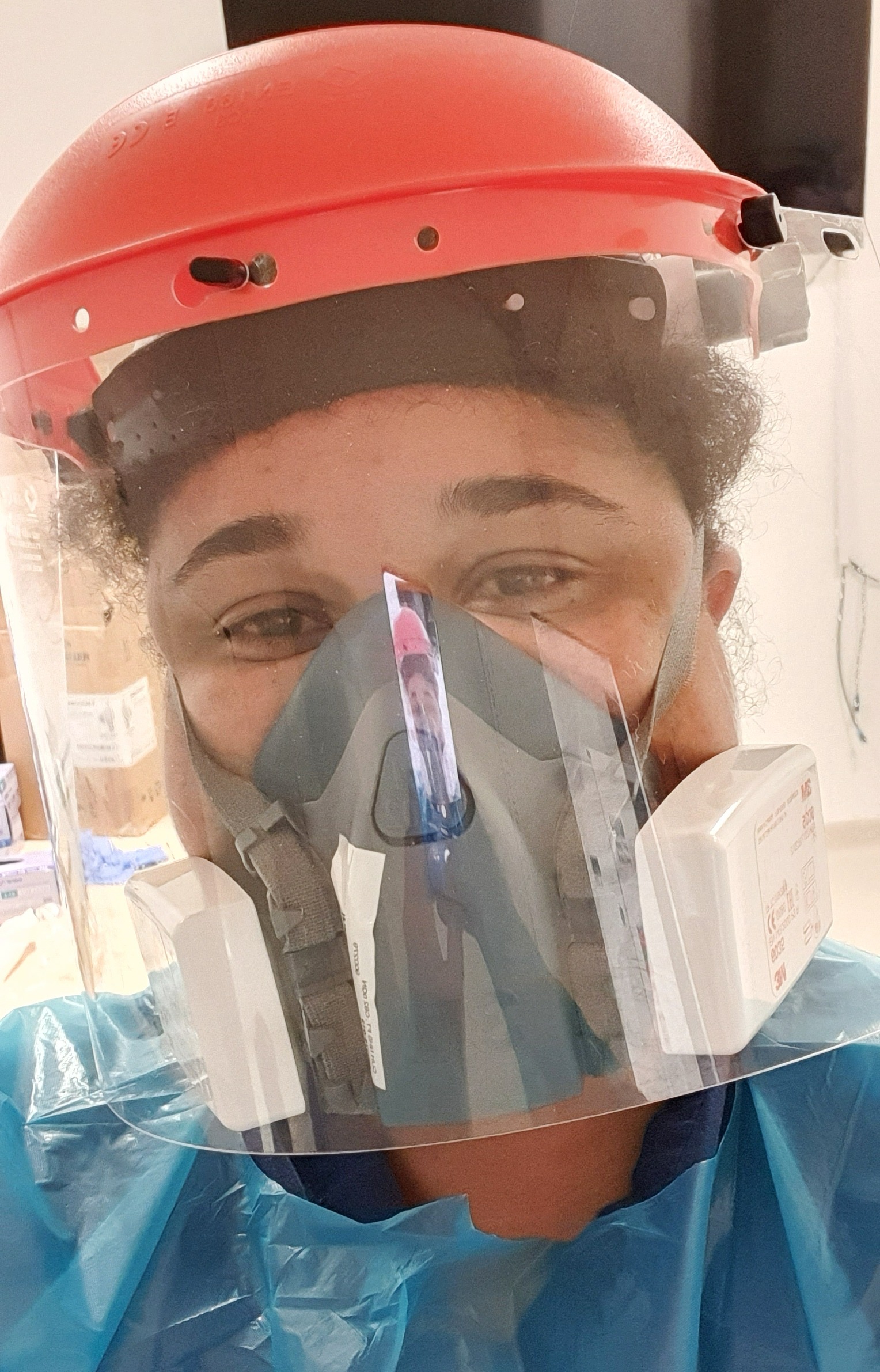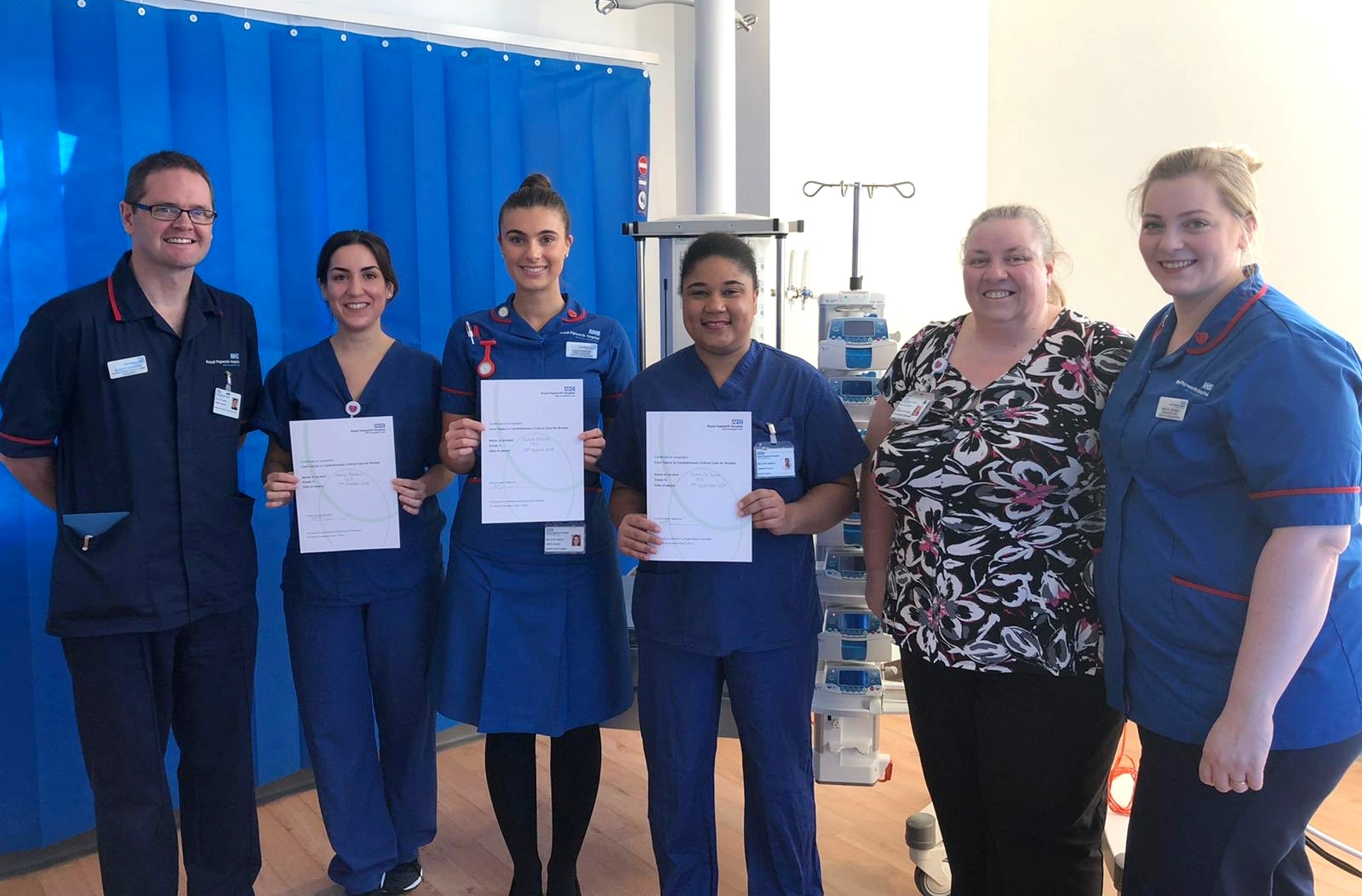Hello my name is Shorai Da Silva and I am a staff nurse in critical care. I joined Royal Papworth Hospital in June 2018.
For me being a nurse has always been about helping others during their most vulnerable moments. Working in critical care has given me the opportunity to do this. The high acuity in critical care means we have one-to-one nursing: each patient needs to have a nurse allocated to them each shift who focuses on their care alone. I find that this helps me know more about the patient and care for them in an in-depth and personalised way. To be able to make a difference in my patient’s lives just by doing my job feels so rewarding.
One of the biggest challenges I have encountered was the death of my father in 2001 when I was 15 years old. He passed away in a critical care unit after being in a coma due to complications of surgery. The nurses that looked after him inspired me to be become a critical care nurse as they showed compassion, dedication and went the extra mile as they carried out their duties.
Eight years later, I completed my general nurse training and after I qualified I worked in that same unit where my father was treated, alongside some of the nurses that had cared for him.

Shorai joined Royal Papworth Hospital's critical care team in 2018
I moved to the UK in 2015 and initially worked in a care home, but decided to move back to the hospital environment in 2018 when I joined Royal Papworth Hospital.
Making the decision to migrate from Zimbabwe was not easy as it meant leaving my family behind to move to a country where I didn't know anyone. It didn't really click until I had arrived in the UK and I realised that I had travelled 12,500 km and all I had was my suitcase. The emotional roller coaster of starting afresh and adjusting in a new country without family close by is heart breaking.
I decided to migrate because I wanted to improve my nursing skills and knowledge. Nursing in Zimbabwe became increasingly difficult due to the lack of resources caused by economic turmoil. It was hard losing patients who could have been saved had there been adequate medication and equipment.
Joining Royal Papworth Hospital has helped me to not only improve my skills and knowledge but to attain educational qualifications. I have since completed the in-house cardiothoracic course held in conjunction with Anglia Ruskin University in 2019 and recently graduated from the University of East Anglia after completing the postgraduate masters level Intensive Care Course (2022).

Shorai (centre) after completing a cardiothoracic critical care course
Any story is not complete without the experience of the COVID-19 pandemic which came unexpectedly and took the lives of so many people.
I was working in the critical care unit during the pandemic and remember the first days we admitted and converted the unit into a COVID-19 unit. At that point there was no vaccine and no cure. As everyone was urged to stay at home, NHS staff woke up each day to go to work and BAME staff like me were at a higher risk. A lot of healthcare workers lost their lives to COVID-19, by simply going to work to look after others.
Black History Month to me means a lot as it acknowledges and reminds us all of the contribution Black people have made to the UK, not only in the past but continue to make, in particular the work done in the NHS since its inception. My wish is for us to be appreciated all year round.
One thing that people can do to support is to be an ally.
Allyship is important as other staff/management can positively impact BAME experience in the workplace and take that out into the wider world. It's not enough to say one is not racist, but to also speak out and act when injustices and racist behaviours are observed.
When I first started working at Royal Papworth Hospital, I felt valued and encouraged by my line manager who took the time to get to know me better. She asked about my previous work experience and encouraged and supported me to apply for educational opportunities at a time where my overseas experience seemed irrelevant.
Overseas healthcare workers contribute a lot to keep the NHS functioning are not just there to make up the staffing numbers. Providing support to overseas workers helps them to adjust to the new environment makes the transition easier and makes them feel valued.
Congratulations to Shorai, who will this month begin a new role in our transplant team on a band 6 secondment.
